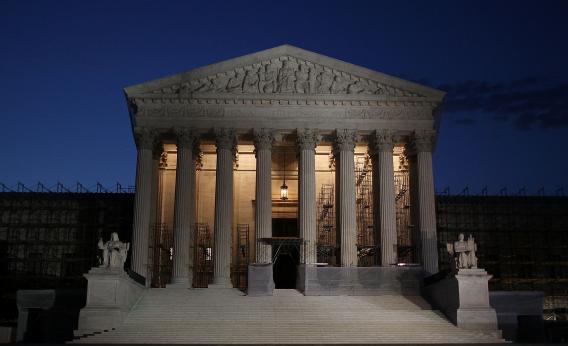Bigger bucks come to Supreme Court clerks who wait. Top U.S. law firms are offering $280,000 signing bonuses to lure the young attorneys who work with America’s nine top judges. But many do stints with the government first. A newBreakingviews calculator shows how that path can be financially smarter over the long run.
Law firms with Supreme Court practices are especially eager to hire ex-clerks. Recent studies suggest that attorneys are more successful before the court if they have inside experience. Five of the seven lawyers who argued the case involving President Barack Obama’s health care law last March, for instance, were former clerks. And the numbers look attractive. Including the golden hello, first-year pay would approach $500,000. The next year would still be well over $200,000, against roughly $120,000 in starting salary working for the government.
Some clerks aren’t so easily impressed. About a third of those who left the court in 2011 turned down big firms to work at the Justice Department, the State Department and the Office of Management and Budget. These jobs offer opportunities like trial experience, the chance to shape policy, and contact with senior officials. There’s also less of the mind-numbing work thrown at big law firm associates.
Initially, a young lawyer in public service will make far less. But practical experience in government can be a surer route to a partnership at a private sector firm. Not only does the likelihood of becoming a partner go up – say to 70 percent, against maybe only 30 percent for even a strong associate at a law firm – but a full partnership could come several years sooner. That position brings an initial annual payout of perhaps $800,000 at a major firm.
A clerk planning a career also has to consider the alternative if a partnership isn’t forthcoming. That’s probably either a corporate job or a law school teaching role. Neither typically gets close to partner pay. Weighting the different outcomes and timing, a clerk who goes into government might expect to make an average of more than $700,000 a year over 15 years. The figure for someone heading straight to private practice could work out below $500,000.
Surprisingly, opting for five years or so in government can be a financial win. And the American public then also benefits from the service of top young legal talent. In Washington, the most heavily lawyered town in America, Uncle Sam can use the help.
Read more at Reuters Breakingviews.
